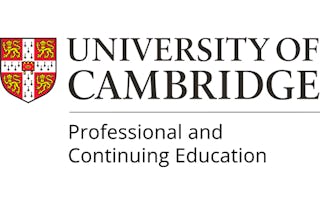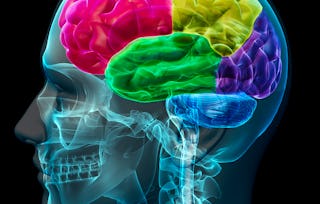Course 4 presents an overview of cognitive capacities and limitations. You will distinguish between different types of attention, compare and contrast different types of memory, identify the most common strategies and heuristics humans use for decision making and problem solving.

Human Cognitive Capacities & Limitations
6 days left! Gain next-level skills with Coursera Plus for $199 (regularly $399). Save now.

Human Cognitive Capacities & Limitations
This course is part of Human Factors & Usability Engineering: Designing for Humans Specialization

Instructor: Robert Gray
Included with
(10 reviews)
Recommended experience
What you'll learn
Learn to distinguish between types of attention & memory, and identify strategies and heuristics used for decision making & problem solving.
Skills you'll gain
Details to know

Add to your LinkedIn profile
4 assignments
See how employees at top companies are mastering in-demand skills

Build your subject-matter expertise
- Learn new concepts from industry experts
- Gain a foundational understanding of a subject or tool
- Develop job-relevant skills with hands-on projects
- Earn a shareable career certificate

There are 5 modules in this course
Building upon the knowledge gained from Course 3, we now delve into the cognitive aspects of human factors in Course 4: Cognitive Capacities & Limitations. Throughout this course, we will explore different types of attention, memory, decision-making strategies, and problem-solving techniques. By understanding the limitations in attentional capacity and decision-making strategies, we can gain insights into how they contribute to human error. This knowledge will empower us to design systems and interfaces that accommodate these cognitive limitations and optimize human performance.
What's included
1 video1 reading
In this module, we will discuss the field of motor control, exploring how we control our movements and the various constraints that shape our actions. Through this module, we will uncover the characteristics of movement solutions and gain insights into the intricate processes involved in motor control.
What's included
3 videos3 readings1 assignment1 discussion prompt
In this module, we shift our focus to human memory and attention. Understanding how our memory works and how we allocate our attention is crucial for designing effective interfaces and optimizing human performance. We explore the concept of attention, the different types of attention, and their role in information processing. We also delve into the complexities of human memory, including its various stages, encoding processes, and factors that influence memory retrieval. Lastly, we examine the traditional model of skill acquisition, shedding light on how individuals acquire and refine their skills over time.
What's included
4 videos5 readings1 assignment1 discussion prompt
In Module 3, we explore the cognitive processes and factors that influence our decision-making abilities. From understanding how decisions are made to exploring the role of heuristics and biases, this module provides valuable insights into the human mind and its approach to problem-solving. Additionally, we discussed the concept of creativity and how it contributes to innovative problem-solving techniques.
What's included
3 videos5 readings1 assignment1 discussion prompt
In this module, we will discuss motor learning and skill acquisition. By the end of this module, you will have a comprehensive understanding of the traditional and ecological approaches to skill acquisition and the research findings that contribute to our knowledge of motor learning and skill development.
What's included
2 videos8 readings1 assignment
Earn a career certificate
Add this credential to your LinkedIn profile, resume, or CV. Share it on social media and in your performance review.
Instructor

Offered by
Explore more from Mechanical Engineering
 Status: Free Trial
Status: Free TrialArizona State University
 Status: Free Trial
Status: Free TrialUniversity of Cambridge
 Status: Free Trial
Status: Free TrialUniversity of Cambridge
 Status: Free Trial
Status: Free TrialUniversity of Cambridge
Why people choose Coursera for their career




Learner reviews
10 reviews
- 5 stars
90%
- 4 stars
10%
- 3 stars
0%
- 2 stars
0%
- 1 star
0%
Showing 3 of 10
Reviewed on Aug 14, 2024
Excellent. Different and interesting and very good instructor.
Reviewed on Oct 30, 2024
Good explanation of acquisition of motor skills for sports; I would have preferred more discussion on human decision making
Frequently asked questions
To access the course materials, assignments and to earn a Certificate, you will need to purchase the Certificate experience when you enroll in a course. You can try a Free Trial instead, or apply for Financial Aid. The course may offer 'Full Course, No Certificate' instead. This option lets you see all course materials, submit required assessments, and get a final grade. This also means that you will not be able to purchase a Certificate experience.
When you enroll in the course, you get access to all of the courses in the Specialization, and you earn a certificate when you complete the work. Your electronic Certificate will be added to your Accomplishments page - from there, you can print your Certificate or add it to your LinkedIn profile.
Yes. In select learning programs, you can apply for financial aid or a scholarship if you can’t afford the enrollment fee. If fin aid or scholarship is available for your learning program selection, you’ll find a link to apply on the description page.
More questions
Financial aid available,





